Apex Recovery operates rehab facilities across several states, with two located in the Nashville, Tennessee metropolitan area. One of these facilities provides residential treatment, catering to people seeking intensive support in their recovery journey. With a diverse range of programs and services, Apex Addiction Recovery Center addresses the varied needs of those battling addiction in the Nashville community.
Apex Recovery collaborates with numerous health insurance providers, offering in-network coverage for their residential treatment programs. This ensures that people seeking assistance for addiction can access quality care without financial burden. By accepting insurance, Apex Recovery helps make comprehensive Tennessee residential substance abuse treatment accessible to a broader range of people in need. See our insurance page for more.
What is a Residential or Inpatient Addiction Rehab Facility?
A residential or inpatient addiction rehab facility is a specialized center where people with substance use disorders receive intensive treatment and support in a structured living environment. Unlike outpatient programs, residential rehab requires patients to stay on-site 24/7, providing a safe and controlled setting away from everyday triggers and stressors that may contribute to their addiction.
These facilities offer a comprehensive approach to residential recovery, incorporating a mix of therapy sessions, medical care, and supportive services designed to address not just the addiction itself, but also the underlying psychological, emotional, and behavioral issues. The goal is to equip people with the tools, strategies, and resilience needed to achieve long-term sobriety and improve their overall quality of life.
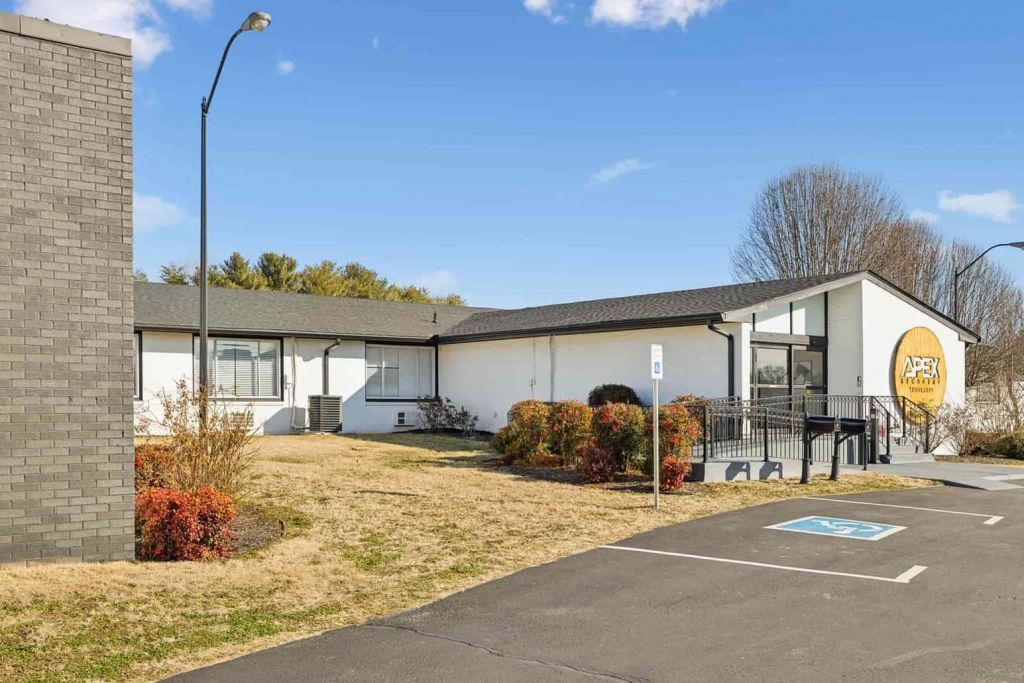
What are the Major Differences Between Inpatient and Residential Addiction Treatment Programs?
While inpatient and residential addiction treatment programs both offer immersive environments for recovery, the major difference lies in their clinical setting. Inpatient programs are typically in hospital settings, providing a high level of medical and psychiatric care. This is ideal for detoxification or for those with severe addiction and co-occurring disorders, offering immediate access to medical professionals and emergency services.
Residential programs, conversely, are often situated in more home-like environments, focusing on a holistic approach to recovery that includes therapeutic community support, and lifestyle changes. Although less clinically intensive, Tennessee residential addiction treatment still provides a structured, supportive environment aimed at fostering long-term sobriety.
What are the Major Differences Between Outpatient and Residential Treatment?
The major differences between outpatient and residential treatment lie in their structure and intensity. Outpatient treatment allows people to live at home and maintain daily responsibilities while attending scheduled treatment sessions. Tennessee residential drug treatment requires living in a facility, offering a highly structured environment with 24/7 care and intensive support, ideal for those needing a focused setting to address their addiction.
What are the Major Differences Between a Partial Hospitalization Program and Residential Treatment
Partial hospitalization programs (PHP) offer intensive treatment during the day, allowing patients to return home in the evenings. Residential treatment, on the other hand, involves a live-in commitment at a facility with 24/7 supervision and support. While both provide structured care, residential treatment offers a more immersive environment, ideal for those requiring ongoing support and monitoring.
Tennessee Drug & Alcohol Inpatient and Residential Treatment Stats
In 2020, Tennessee reported 7,267 residential treatment admissions, highlighting a significant demand for substance abuse and mental health services. Notably, 1,579 of these admissions involved patients under the age of 18, emphasizing the need for youth-targeted interventions. The state also saw an average of 590 clients remain in residential treatment for over a year.
Despite these efforts, 28.7% of Tennessee adults who needed mental health treatment did not receive it, and only 8.9% of children received mental health care. Tragically, the state experienced over 3,000 opioid overdose deaths, underlining the opioid crisis’s severity. Financially, Tennessee ranked 16th in the U.S. for the cost of residential drug rehab, making it relatively more affordable than other states. Yet, 1,568 patients enrolled in residential drug services statewide, indicating a growing recognition and utilization of these crucial services.
Discover the Popular Towns, Cities, and Sites of the Volunteer State
Tennessee, known as the Volunteer State, boasts an abundance of charming towns, vibrant cities, and iconic sites. Nashville, the state capital, is renowned for its live country music scene, BBQ, and historic landmarks like the Grand Ole Opry. Memphis, famous for its rich musical heritage and Elvis Presley’s Graceland, draws visitors worldwide.
The Great Smoky Mountains National Park offers breathtaking natural beauty and outdoor adventures. Knoxville combines its vibrant arts scene and rich historical heritage with the natural beauty of the mountains. Additionally, Gatlinburg and Pigeon Forge are popular destinations nestled in the Smokies, offering family-friendly entertainment like Dollywood and stunning mountain views. Tennessee’s diverse landscapes and cultural attractions make it a captivating destination for travelers of all interests.

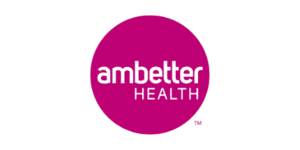

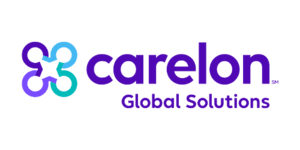
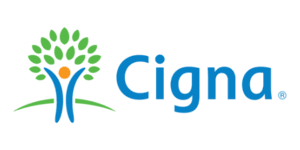

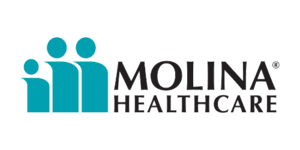
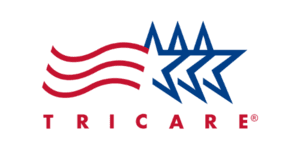
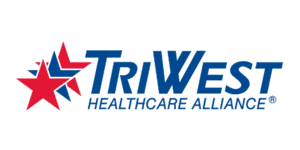

Contact Apex Recovery Tennessee to check your insurance coverage levels for Residential Inpatient Drug and Alcohol Treatment.
What is the Process of Inpatient or Residential Addiction Rehab?
The process of inpatient or residential addiction rehab typically follows a structured approach to ensure comprehensive care and support for those seeking recovery. The process begins with an intake assessment to gather detailed information about the person’s health history, substance use, and any co-occurring mental health conditions.
Following assessment, detoxification may be the next step, providing medical supervision to safely manage withdrawal symptoms. Post-detox, the core of the rehab process involves intensive therapy sessions, including individual counseling, group therapy, and possibly family therapy, to address the psychological aspects of addiction. Educational workshops and skills training are also integral, equipping patients with coping mechanisms and relapse prevention strategies. The goal is to foster a stable foundation for long-term recovery and a healthier, substance-free life.
Do Health Insurance Plans Cover Residential Alcohol & Drug Rehab in Tennessee?
Many health insurance plans in Tennessee offer coverage for residential alcohol and drug rehab programs, although the extent of coverage can vary depending on the specific plan and provider. It’s essential for people to review their insurance policies carefully to understand what services are covered and what out-of-pocket expenses may apply.
To navigate insurance coverage and explore options for residential treatment, reach out to Apex Alcohol and Drug Addiction Recovery Center, as we can provide personalized assistance in understanding insurance benefits and determining the best course of action for accessing quality care. Contact us at Apex Drug and Alcohol Addiction Recovery Center today, or call us at (877) 881 2689 to learn more about how we can check your insurance and help cover the costs of residential alcohol and drug rehab in Tennessee.
Residential / Inpatient Centers in Tennessee
Apex Addiction Recovery Center in Tennessee boasts two specialized substance abuse treatment facilities, one in Brentwood and one in Columbia. Between both rehabilitation centers, we offer a nurturing environment for residential or inpatient care, allowing you to immerse yourself fully in your recovery process.
- Apex Recovery Brentwood: 209 Ward Circle, Brentwood TN, 37027
- Apex Recovery Columbia: 2710 Trotwood Ave STE A & B Columbia, TN 38401
Fill in the form below to request a call back from Apex Recovery Tennessee
What is Treated at Nashville, Tennessee Residential Drug & Alcohol Rehab Facilities
Nashville, Tennessee’s residential drug and alcohol inpatient rehab facilities are equipped to treat a wide range of substance dependencies. These centers specialize in comprehensive care for addictions to opioids, alcohol, benzodiazepines, and stimulants, providing targeted treatments and support systems designed for each specific type of substance abuse. Expert care teams develop personalized recovery plans for the unique challenges of each person.
Alcohol Addiction Treatment
Tennessee residential facilities provide personalized treatment for alcohol addiction, offering a range of therapeutic interventions to address the complex nature of alcohol dependency. These programs often include medically supervised detoxification, individual and group therapy sessions, life skills training, and support groups. Through a holistic approach, patients receive comprehensive care to overcome alcohol addiction and achieve long-lasting sobriety.
Opioid (Heroin, Opiate, Prescription Painkillers) Addiction Treatment
Tennessee residential facilities offer specialized treatment for opioid addiction, including heroin, opiate, and prescription painkiller dependencies. These programs typically incorporate a combination of medication-assisted residential therapy, individual and group counseling, behavioral therapies, and holistic residential treatment approaches to address the physical, psychological, and emotional aspects of opioid addiction, fostering a comprehensive path to recovery.
Benzodiazepine (Xanax, Ativan, Valium) Addiction Treatment
Residential facilities in Tennessee offer dedicated treatment programs for benzodiazepine addiction, including dependencies on Xanax, Ativan, and Valium. These treatments typically involve a medically supervised detox process, followed by various therapies, cognitive-behavioral therapy, and relapse prevention strategies. The goal is to address both the physical and psychological aspects of addiction, promoting holistic recovery.
Stimulants (Cocaine, Methamphetamine) Addiction Treatment
In Tennessee, residential facilities provide comprehensive treatment for stimulant addictions, such as cocaine and methamphetamine. These programs focus on intensive care that includes medically supervised detoxification, behavioral therapies, individual and group counseling, and relapse prevention education. The aim is to help people understand the root causes of their addiction and develop coping mechanisms for sustainable recovery.

How Much Does Residential Addiction Treatment Cost Without Health Insurance in Tennessee?
The cost of residential addiction treatment in Tennessee without health insurance can vary depending on factors such as the duration of the program, amenities provided, and the specific treatment center. On average, residential treatment can range from $5,000 to $30,000 per month.
However, it’s important to note that these figures are approximate and can be higher or lower based on individual circumstances and the facility. Additionally, many treatment centers, including Apex Substance Addiction Recovery Center, offer sliding scale fees or financial assistance options to make treatment more affordable for those without insurance.

Check Your Insurance
Apex Recovery Tennessee is in-network and accepts most major health insurance plans to make Residential Inpatient Drug and Alcohol Treatment more accessible in Tennessee. Contact us today to check your coverage!
How Long are Long-Term Residential Mental Health Therapy Programs in Tennessee?
Long-term residential mental health therapy programs in Tennessee vary in duration to accommodate diverse needs and treatment goals. 30-day programs offer a brief but intensive intervention. 60-day and 90-day programs allow for deeper exploration and more comprehensive treatment planning. For those requiring extended support, 6-month, 12-month, and even 24-month residential programs offer ongoing care and skill-building to promote sustained recovery.
30-Day Residential Treatment Program
A 30-day residential mental health treatment program in Tennessee provides people with a focused and intensive therapeutic experience aimed at stabilization and initial intervention. During this period, patients receive comprehensive assessment, individual and group therapy sessions, medication management if needed, and support in developing coping skills to manage symptoms and promote recovery.
60-Day Residential Treatment Program
A 60-day residential treatment program in Tennessee offers an extended period for intensive therapy and recovery support. With an additional month, this time frame allows for deeper exploration of underlying issues, more comprehensive treatment planning, and greater skill development for managing mental health symptoms. Patients receive structured therapy sessions, medication management, and ongoing support throughout their stay.
90-Day Residential Treatment Program
A 90-day residential treatment program in Tennessee provides patients with an extended timeframe for intensive therapy and recovery support. This program offers ample time for comprehensive assessment, deeper exploration of underlying issues, and skill-building to manage mental health symptoms effectively. Patients participate in structured therapy sessions, medication management, and receive ongoing support to promote lasting recovery.
6-Month, 12-Month and 24-Month Residential Treatment Programs
Tennessee offers extended residential treatment programs lasting 6 months, 12 months, and 24 months, providing patients with comprehensive and sustained support for long-term recovery from mental health disorders. These programs allow for in-depth therapy, skill-building, and relapse prevention strategies, empowering people to address underlying issues and develop resilience for lasting mental wellness.
How Long are Short-Term Residential and Inpatient Treatment Programs in Tennessee?
Short-term residential and inpatient treatment programs in Tennessee offer varying durations to accommodate different levels of need and urgency. Weekend programs provide a brief but focused intervention, offering intensive therapy and support over a short period. Similarly, 3-day, 5-day, and 7-day programs provide a condensed yet impactful approach. 10-day, 14-day, and 21-day programs offer extended support to promote stabilization.
Residential Rehab Weekend Program
The Residential Rehab Weekend Program in Tennessee is designed for those seeking a brief but intensive therapeutic intervention. This condensed format focuses on providing immediate support, crisis intervention, and the beginnings of a treatment plan over a few days. It’s ideal for those who need immediate assistance but cannot commit to longer-term treatment due to personal obligations.
Residential 3-Day, 5-Day, and 7-Day Rehab Programs
Residential 3-day, 5-day, and 7-day rehab programs offer short-term, intensive treatment options tailored to people needing urgent but brief therapeutic support. These programs focus on crisis intervention, stabilization, and the foundation for ongoing recovery, ideal for those with time constraints or as a step towards longer-term treatment, providing focused therapy and initial recovery planning.
Residential 10-Day, 14-Day, 21-Day Rehab Programs
Residential 10-day, 14-day, and 21-day rehab programs offer slightly longer-term options for those requiring more intensive support than shorter residential addiction programs can provide. These programs allow for more comprehensive assessment, therapy, and skill-building, offering people a greater opportunity to address underlying issues and develop coping strategies before transitioning to outpatient care or longer-term residential treatment.
Tennessee Inpatient or Residential Treatment Centers for Mental Health
Tennessee offers a range of inpatient and residential treatment centers specifically tailored to address mental health disorders through therapy. These facilities provide intensive, structured environments where people receive comprehensive care for conditions such as depression, anxiety, bipolar disorder, and more. Treatment typically involves a combination of evidence-based therapies, medication management, psychoeducation, and support groups.
With a focus on holistic healing and individualized residential mental health programs, these residential rehabilitation centers address the underlying causes of mental health disorders and equip patients with the tools and skills necessary for long-term recovery and improved mental well-being.
Contact Apex Recovery Tennessee to check your insurance coverage levels for Residential Inpatient Drug and Alcohol Treatment.
Finding Residential or Inpatient Substance Abuse Treatment Centers in Middle Tennessee
Discovering the right residential or inpatient substance abuse treatment center in Middle Tennessee can be vital towards recovery. It’s essential to find a Tennessee residential substance abuse treatment facility that offers the support and care necessary for a successful journey to sobriety. Contact us at Apex, where we can guide you through every step. Call (877) 881 2689 today.
Other ways to find to Residential or Inpatient Addiction Treatment Centers in Tennessee
Utilizing search engines like Google can yield many options, allowing you to browse facilities, read reviews, and compare services. Try searching “Tennessee residential alcohol treatment near me” or “Tennessee residential addiction treatment near me” to start. Referrals from primary care physicians offer personalized recommendations based on medical history and individual needs.
Insurance provider directories can help identify treatment centers covered by your insurance plan. Additionally, city, state, and federal resources such as Tennessee’s Department of Mental Health and Substance Abuse Services or the Substance Abuse and Mental Health Services Administration (SAMHSA) provide comprehensive directories and support services. Explore these links for further assistance:
Inpatient / Residential Addiction Treatment Frequently Asked Questions (FAQs)?
Embarking on the journey to recovery through inpatient or residential addiction treatment often brings up lots of questions for patients and their families. From understanding the amenities and policies of the facility to navigating concerns about personal, professional, and social aspects of their lives during treatment, it’s crucial to address these queries. Let’s look at some common questions.
Do Residential Rehab Programs offer Immediate or Same Day Admissions?
Residential rehab programs (like Apex Addiction Recovery Center in Middle Tennessee) may offer immediate or same-day admissions depending on availability and individual circumstances. However, this varies among facilities, and some may require an assessment or pre-admission process before admission. It’s recommended to contact the treatment center directly to inquire about their admission process and availability for immediate admissions.
Can My Friends and Family Visit me at Live-In Rehabilitation Centers?
Friends and family visits at live-in rehabilitation centers are generally encouraged as part of the recovery process, but policies on visitation can vary widely. Most facilities have specific visiting hours and may require visitors to follow certain guidelines or participate in family therapy sessions. It’s important to check with the specific center for their visitation policies.
Can I Lose My Job While Being Treated at a Residential Rehab Center?
Whether one can lose their job while undergoing treatment at a residential rehab center depends on various factors, including employment laws, company policies, and communication with the employer. Some people may have protections under the Family and Medical Leave Act (FMLA) or disability laws, while others may face potential job loss depending on their employer’s policies and circumstances.
Can I bring a Pet (Dogs/Cats) to a Residential / Inpatient Treatment Program?
Bringing pets, such as dogs or cats, to a residential or inpatient treatment program is typically not allowed due to health and safety regulations. However, some specialized facilities recognize the therapeutic benefits of pets and may offer pet-friendly programs or make exceptions. It’s important to inquire directly with the treatment center about their policy on pets.
Do Residential Addiction Treatment Facilities Offer WiFi?
Many residential addiction treatment facilities offer WiFi access to their clients. However, policies regarding internet usage may vary depending on the facility. Some centers may restrict access to certain websites or limit usage hours to ensure a focused and therapeutic environment. It’s essential to inquire about WiFi availability and usage policies when considering a specific treatment facility like Apex.
Can I Bring Cell Phone, Laptop, or Tablet with me to Residential Treatment?
The policy on bringing cell phones, laptops, or tablets to residential treatment varies by facility. Some centers allow these devices but may limit their use to certain times or areas to ensure they don’t interfere with the treatment process. Others might restrict or prohibit them entirely to maintain a distraction-free environment for all clients.
Tennessee Substance Addiction (Drug and Alcohol) Residential Treatment Related Stats
- There were 7,267 residential admissions in the state in 2020
- 1,579 of those admissions were patients under 18
- An average of 590 clients were in residential treatment for more than 1 year
- 28.7% of Tennessee adults needed mental health treatment but did not receive it
- 8.9% of children received mental health care in the state
- There were more than 3,000 opioid overdose deaths in Tennessee
- Tennessee ranked 16th from least to most expensive in the U.S. for residential drug rehab
- 1,568 patients enrolled in residential drug services statewide






